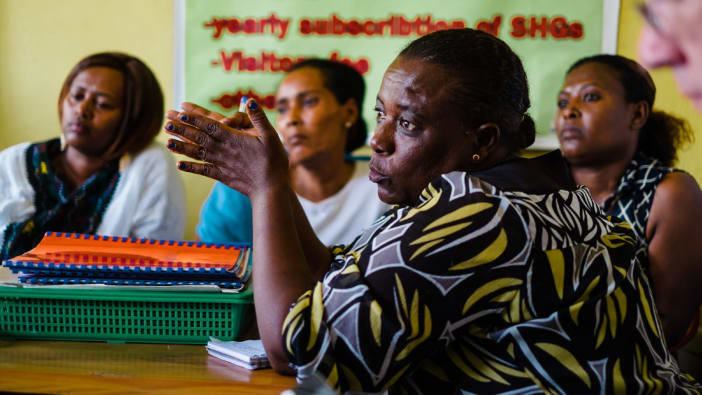by Gideon Njini.
Group meetings influence the activities and future direction of groups. There are two main kinds of meeting: private and public. Public meetings discuss matters which may be of interest to all local people. Private meetings are open only to members or those with a direct interest in the subject. All meetings should give proper notice to those open to attend and should be run according to the rules of the constitution.
The language of meetings
The constitution is the set of guidelines and rules by which a society or group run their affairs.
The Chairperson should be democratically elected, allowing every member an equal opportunity to decide who is the right person for this role. This person is responsible for producing the agenda which members should have the opportunity to change.
The agenda sets out the business to be discussed in a good order.
Members must address remarks either to the Chairperson or to the meeting and not discuss issues between themselves. The Chairperson needs to keep the meeting lively and interesting as well as ensuring that the more silent members are encouraged to participate.
The minutes provide a permanent record of the matters discussed which can be filed and kept safely for future reference. The Chairperson should read out the minutes of the previous meeting at the beginning, allow any changes or amendments to be made and then sign them as a true record.
The Secretary takes a record of those attending. This person needs to take notes of everything discussed and decided, in order to write up the minutes later in greater detail. The Secretary also needs to collect all necessary letters and written information before the meeting and may need to check facts and figures from the Chairperson’s notes. Like the Chairperson, the Secretary should be democratically elected.
The value of meetings
Meetings can provide a way for poorer and less powerful members of society to share their ideas. Information can be gathered and shared at meetings with little or no cost. They are an open way of carrying out business, making corruption more difficult. They encourage participation in decision-making. They can encourage people to cooperate and work together. They encourage careful and reasoned decision making.
Gideon Njini is a consultant with Resources Management Consultants. His address is: PO Box 5011, Nkwen Bamenda, NWP, Cameroon.
EDITOR: Be aware that sometimes meetings may be used by powerful community members to get their own way. Following these recommendations may help to prevent this happening.









